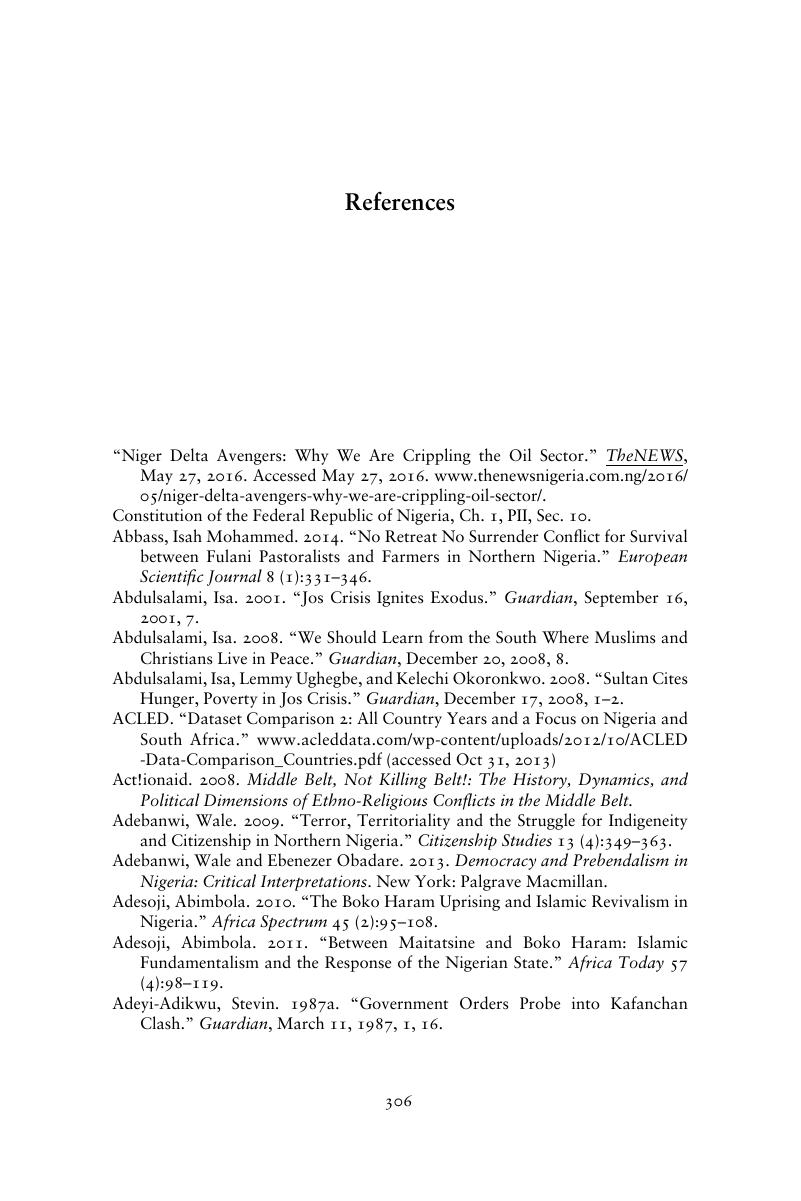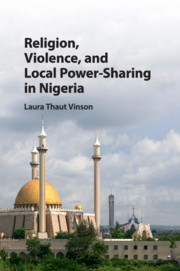Book contents
- Religion, Violence, and Local Power-Sharing in Nigeria
- Religion, Violence, and Local Power-Sharing in Nigeria
- Copyright page
- Dedication
- Contents
- Figures
- Tables
- Preface
- Acknowledgments
- 1 Deterring Religious Violence
- Part I The Importance of the Politics of Religious Change and Local Government
- Part II Making the Case for Power-Sharing: The Empirical Evidence
- Part III Conclusions
- Book part
- References
- Index
- References
References
Published online by Cambridge University Press: 13 October 2017
- Religion, Violence, and Local Power-Sharing in Nigeria
- Religion, Violence, and Local Power-Sharing in Nigeria
- Copyright page
- Dedication
- Contents
- Figures
- Tables
- Preface
- Acknowledgments
- 1 Deterring Religious Violence
- Part I The Importance of the Politics of Religious Change and Local Government
- Part II Making the Case for Power-Sharing: The Empirical Evidence
- Part III Conclusions
- Book part
- References
- Index
- References
Summary

- Type
- Chapter
- Information
- Religion, Violence, and Local Power-Sharing in Nigeria , pp. 304 - 305Publisher: Cambridge University PressPrint publication year: 2017



